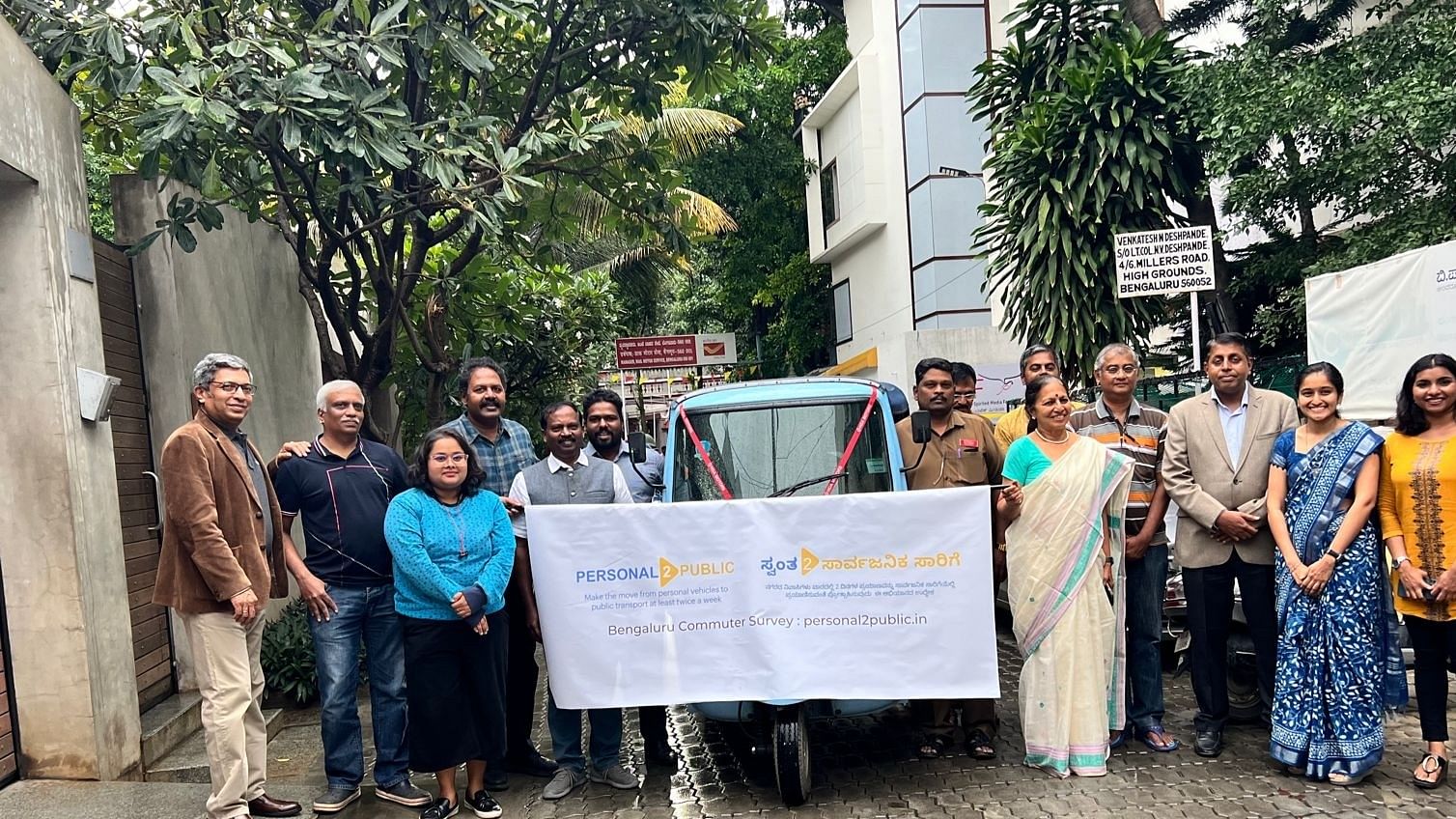
Credit: DH Photo
At least 60 MNCs headquartered in Bengaluru have joined hands for an initiative to promote sustainability in public interest projects. It is called Sustainability Ecosystem Collaboration (SEC).
In monthly meetings, the senior leaders of these firms discuss public projects they can deploy their technical expertise to, and also share best company practices and startup solutions they can replicate internally. These projects range from mapping EV charging stations over cloud to making solar rooftops affordable, reducing packaging waste, and developing mechanisms to track CO2 consumption in the supply chain.
Last month, SEC joined the steering committee of the PersonalToPublic (P2P) campaign to boost commuting by Namma Metro — the Metro Mitra app by an auto union is an enabler of those efforts. Under P2P, work is also underway to see if BMTC can combine routes to operate feeder buses along the tech corridor or if shuttle services by corporates can be utilised for ride-sharing with the public.
Bridge the gap
What can corporate India teach policymakers about governance? Metrolife spoke to Jayen Desai, founder, SEC. He heads strategy and transformation at VMware India and driving ecosystem partnerships is part of his role. Since starting SEC last year, he has brought 80+ MNCs across India on board.
He illustrates the ‘gaps’: “We are working with tech experts and urban planners to come up with scientific maps and data for bus routes where BMTC can operate feeder buses.”
Jayen says that such granular data collection is being carried out for the first time. Only when we measure data, and measure it consistently, can we design interventions, assess traction and compare results, he says.
The second gap is the lack of metrics. But Jayen believes deploying a structure with meeting cadence, action tracking with clear accountability, reviewing progress and before reviewing progress are some practices from the corporate world which when combined with the accountability and direction from government bodies can be a recipe for success. This collaboration aims to improve public commute, starting with Bengaluru, and will later be extended to other cities. “By year-end, we plan to complete 20% of all the projects,” Jayen shares.
‘This is a start’
Often, sustainability initiatives by legacy companies and international MNCs don’t trickle down to the bottom. SEC is, thus, fostering collaboration among less-known tech companies in India.
“Every month, we discuss one best practice from our member companies, share that knowledge and get into workshops to learn how to adopt it,” he shares. Some case studies: Infosys has patented a technology through which it can run its HVAC system with 30% less energy. VMWare offices don’t consume grid power – they are 100% energy sufficient with every facility now Platinum-certified.
Since the member companies in Bengaluru are concentrated in tech hubs like Whitefield and Bellandur, will SEC benefit only the tech force or the public at large? Jayen feels tech employees form a huge chunk of the population and solving their problems is at least a start.
3 verticals of SEC
‘Tech for Good’ deploys technical expertise to solve real-world problems. “Such as developing a dashboard to track C02 emissions and then offering incentives like subsidised parking to reduce the emissions,” Jayen says.
Under ‘Policy Advocacy’, they engage with government organisations, trade bodies and academia to make policies “progressive”.
Lastly, ‘Employee Philanthropy’ incentivises employees to contribute their time and skills to drive these projects.